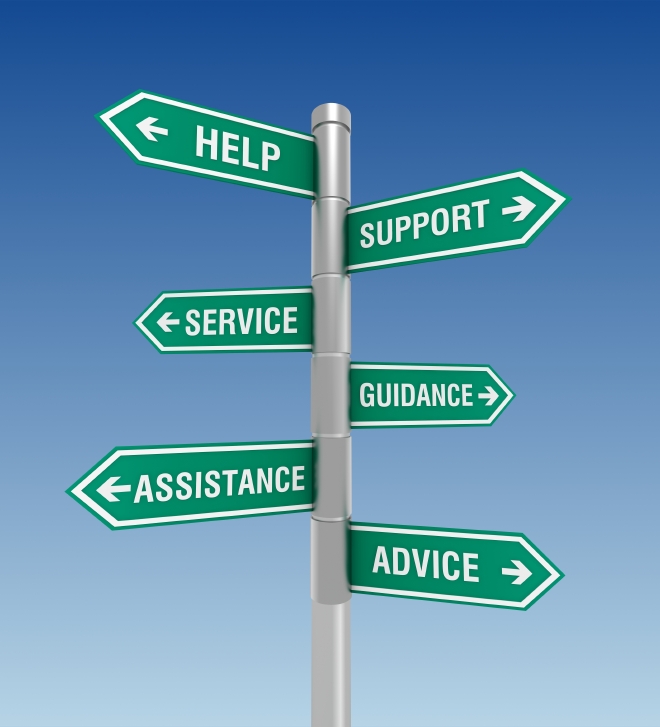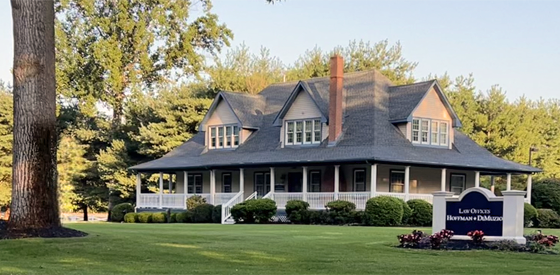- Joseph J. Hoffman, Jr.
- Kenneth A. DiMuzio, Sr.
- Ernest L. Alvino, Jr.
- Anooshay Asim
- Jeremiah J. Atkins
- Peter J. Bonfiglio III
- Vincent Campo
- James M. Carter
- Donald Caruthers, III
- Kenneth A. DiMuzio, Jr.
- Christine DiMuzio Sorochen
- Michael W. Glaze
- Leonard L. Grasso, Jr.
- Robert P. Grossman
- Joseph J. Hoffman, III
- Richard S. Hoffman, Jr.
- Ryan S. Hoffman
- Cristie R. Nastasi
- J. R. Powell
- Joseph J. Slachetka
- Charles J. Sprigman, Jr.
- James S. Taylor
- Robert J. Wiltsee
Your Legal Corner will discuss “What is Domestic Violence and What You Need To Know.” Just as every picture tells a story, every story has at least two interpretations. For instance, in one sense the month of October displays the beginnings of annual family holiday traditions, from carving pumpkins through making New Years toasts. October, however, also takes on a more somber meaning, as it was recently declared Domestic Violence Awareness month by our Governor, Chris Christie.
Yes, as October calls to mind numerous approaching festivities, this month also asks that one take the time to support a friend, neighbor or family member who may be experiencing some form of domestic violence. Still, in order to help someone experiencing domestic violence, one must know the signs.
Signs of Domestic Violence
Domestic violence can be emotional, physical and or financial. Emotional signs may include some form of control such as telling someone what to do, criticizing what they do, humiliating them in front of other people, jealousy, bad temper, possessiveness to the point that the victim just gives up, is isolated and without a support system.
Physical abuse is often the easiest to prove. However, due to embarrassment, the victim will deny the abuse, instead making varied excuses such as she fell down the steps or hit her eye on the side of a swimming pool to name a few.
Financial abuse may consist of the abuser controlling all the funds in the home and how they are to be spent, even to the detriment of the family as in when an abuser has a drug or gambling addiction.

Once you are able to recognize the signs of domestic violence it is important to understand ways of best offering support and advice.
Responses to Domestic Violence
Once you are aware of the basic signs of abuse, you can help victims of domestic violence through your support. When a victim feels supported, he or she may be able to make better decisions but not always. Although domestic violence statistics report that abuse is common, only a few victims are men, while most are women.
Support is offered in numerous ways with the goal of safety. Set a time to talk if the victim is comfortable doing so. Help the victim plan where to go in case of an emergency, in other words, create a safety plan. Offer specific help such as babysitting or holding important documents. Provide general information about available community, legal and financial support.
Community, Legal, and Financial Support
In our community, SERV is the N.J. state certified domestic violence response agency. SERV can be reached 24 twenty-four hours a day, seven days a week at their toll free domestic violence hot line, 1-866-295-serv (7378). In cases of emergency, always call 911 first. For legal representation, seek out a domestic violence attorney who is experienced in handling domestic violence cases. Don’t rule out retaining an attorney because of financial limitations, as funds may be available through your abuser.
New Jersey Criminal Code 2C: 25-29b (4) provides for an order requiring a defendant to pay the victim monetary compensation for losses suffered as a direct result of an act of Domestic Violence. Compensatory losses may include attorney’s fees as well as court costs, compensation for pain and suffering, loss of earnings, child support, alimony, cost of repair of real or personal property and other reasons as discussed with your attorney.
Remember, sometimes you need to know the signs … to see the true picture!
Till next week, God bless, keep smiling and remember who’s in Your Legal Corner. Next week, YLC will discuss “Divorce and the Displaced Homemaker.”
 Victoria M. Dalton is an Attorney Of Counsel with the Law Offices of Hoffman DiMuzio. Call 856-845-8243 or see hoffmandimuzio.com for further information and to request other YLC articles.
Victoria M. Dalton is an Attorney Of Counsel with the Law Offices of Hoffman DiMuzio. Call 856-845-8243 or see hoffmandimuzio.com for further information and to request other YLC articles.
Your Legal Corner was created to provide educational articles about the law and is not legal advice!
Submitting this form does not create an attorney-client relationship, but a lawyer from our firm will contact you as soon as possible.


















